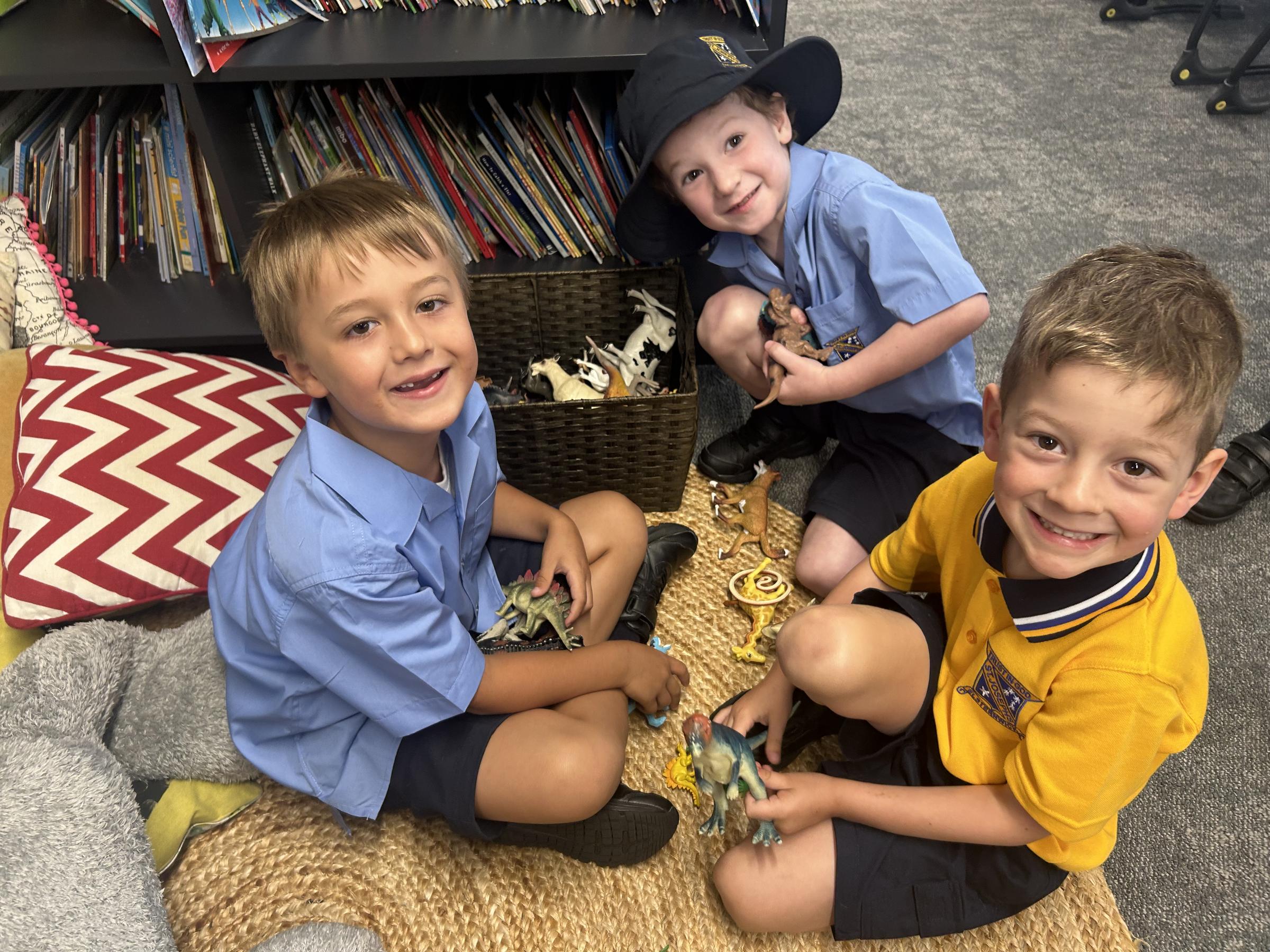Deputy Principal News

Wellbeing in the Holidays
As we head into the Easter holidays, we encourage families to embrace this time as an opportunity to rest, recharge and enjoy quality moments together.
The break offers a chance to slow down, foster meaningful connections, and create a sense of balance at home. Whether it’s through unstructured play, mindful routines, or simply being present with one another, prioritising wellbeing over the holidays can have a lasting impact.
In this weeks newsletter, we’re sharing an article with simple yet meaningful ways to build wellbeing at home during the break. From encouraging creativity to embracing slow, mindful days, these tips will help your family make the most of this special time together.
We sincerely thank our students, parents, and caregivers for a wonderful term filled with learning, growth, and engagement. Wishing you all a safe, joyful and blessed Easter break!
We look forward to seeing you on the gate on Tuesday, April 22nd at 8:30am.
On a personal note, I’d like to extend our warmest wishes to Lauren Doran and Tom Hartney, along with their partners, as they prepare to welcome new additions to their families. We are so excited for them and can’t wait to see them embrace their new roles as Mum and Dad. We’re also looking forward to some baby cuddles at St Joseph’s in Term Two!
Alannah Harrison
Deputy Principal
Building Wellbeing at Home These Holidays
The school holidays are a unique opportunity to cultivate deep family bonds, healthy habits, and a sense of freedom and self-expression in your family. And they’re here! Instead of rushing through endless activities or striving for perfection, the following five principles will help you create a balanced and joyful summer holiday experience for your family.
5 Ideas to Help Your Family Make the Most of School Holidays
1. Prioritise Presence Over Perfection
The school holidays are a rare opportunity to spend uninterrupted time with your children. While it can be tempting to fill every day with perfect plans or carefully curated activities, the real benefit comes from your presence. Children don’t remember the specific outings or events as much as they remember how their parents made them feel.
Set aside distractions (like phones, emails, or work) during your time together. Engage in open-ended conversations, delight in the simplicity of everyday moments with your child, and enjoy the shared experiences that only come when you’re truly present.
2. Cultivate Slow, Mindful Days
In our fast-paced world, we often forget the value of slowing down. The school holidays provide the perfect opportunity to create a rhythm that’s more relaxed. There’s no rush to get from one scheduled event to the next. Encourage your family to embrace the unstructured moments—whether it’s reading a book slowly, taking a walk, or simply doing nothing at all.
Mindful moments aren’t just about relaxation; they promote emotional resilience. When children see their parents embrace stillness, they learn to value time with themselves and discover that joy doesn’t always come from being busy.
3. Encourage Autonomy and Agency
Holidays are an ideal time for children to explore their independence. Instead of micromanaging every detail of the day, let your children take the lead on certain activities. Allow them to make decisions about what to do, what to eat, or where to go. This sense of autonomy fosters confidence and helps build important life skills.
Trust your children’s judgement and allow them to make their own decisions—this builds self-esteem and resilience.
4. Build Routines That Foster Stability
While the holidays offer a break from the structure of school, children thrive on routine. Rather than having completely open-ended days, create a loose structure to your time. Regular meals, consistent bedtime routines, and predictable pockets of activity can help children feel safe, secure, and emotionally balanced. Routines don’t have to be rigid, but the repetition of positive habits—whether it’s morning walks, family time, or even quiet moments—helps ground everyone during a time of potential upheaval.
5. Foster Play and Creativity Over Achievement
The holidays should be a time to step back from the need to perform and instead embrace the freedom to play and create without any external pressure. Encourage your children to explore new forms of creative expression: drawing, building, writing, or just daydreaming. Let them roam freely in their imagination. This unstructured creative time not only boosts their emotional health, but it also develops their problem-solving abilities, enhances their adaptability, and helps them learn through trial and error in a low-stakes environment.
The Wellbeing Effect of Balanced Holidays
If you’re the kind of family that pushes for progress, achievement, and success, this is particularly important for you.
Know that the best “holiday” is not based upon the number of activities you can fit in or the milestones you can tick off. It’s about creating space for growth, connection, and rest. If you must do something academically oriented, keep it simple by encouraging your kids to read. It’s the one activity that is good for academic achievement without feeling like it’s focused on academic achievement.
These holidays, use your family time wisely—not by being everywhere and doing everything but by simply being together and giving everyone in the family the chance to pause, reflect, and enjoy the richness of life.
